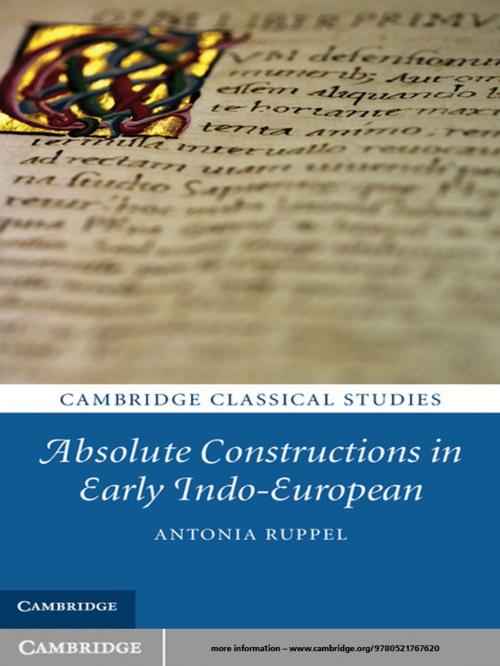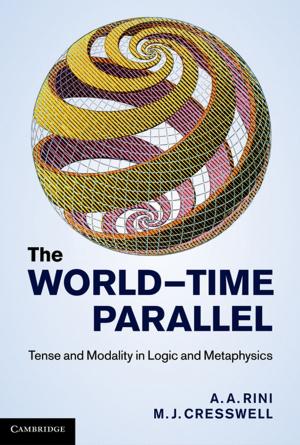Absolute Constructions in Early Indo-European
Nonfiction, Reference & Language, Foreign Languages, Language Arts, Fiction & Literature, Literary Theory & Criticism| Author: | Antonia Ruppel | ISBN: | 9781139793346 |
| Publisher: | Cambridge University Press | Publication: | October 18, 2012 |
| Imprint: | Cambridge University Press | Language: | English |
| Author: | Antonia Ruppel |
| ISBN: | 9781139793346 |
| Publisher: | Cambridge University Press |
| Publication: | October 18, 2012 |
| Imprint: | Cambridge University Press |
| Language: | English |
In the past, discussions of absolute constructions (ACs) have been limited by an imprecise understanding of what ACs are. By examining the nature and function of ACs and related constructions in Greek, Latin and Sanskrit, this new study arrives at a clear and simple definition of ACs. Focussing on the earliest attested material in each language, it highlights how AC usage differs between languages and offers explanations for these differences. Identifying the common core shared by all ACs, it suggests a starting-point and way by which they developed into Greek, Latin and Sanskrit. Further historical study reveals how ACs have been conceived of by grammarians, philologists and even Christian missionaries over the last two thousand years and how enduring misconceptions still affect our discussion of them today. All Sanskrit material is annotated in detail, making it accessible for classicists in particular and allowing a better understanding of ACs in Greek and Latin.
In the past, discussions of absolute constructions (ACs) have been limited by an imprecise understanding of what ACs are. By examining the nature and function of ACs and related constructions in Greek, Latin and Sanskrit, this new study arrives at a clear and simple definition of ACs. Focussing on the earliest attested material in each language, it highlights how AC usage differs between languages and offers explanations for these differences. Identifying the common core shared by all ACs, it suggests a starting-point and way by which they developed into Greek, Latin and Sanskrit. Further historical study reveals how ACs have been conceived of by grammarians, philologists and even Christian missionaries over the last two thousand years and how enduring misconceptions still affect our discussion of them today. All Sanskrit material is annotated in detail, making it accessible for classicists in particular and allowing a better understanding of ACs in Greek and Latin.















